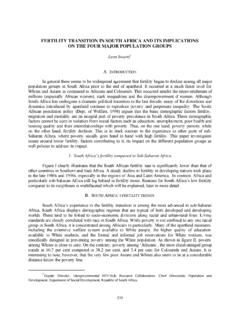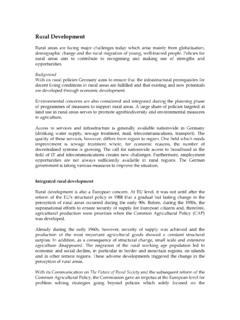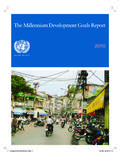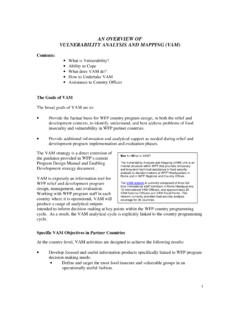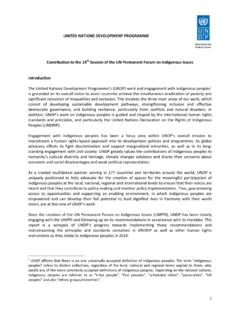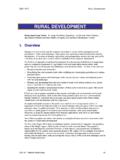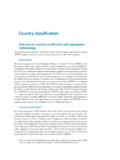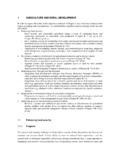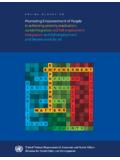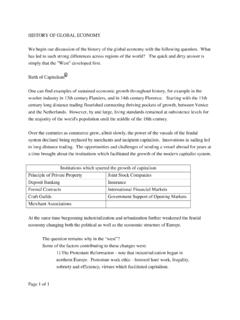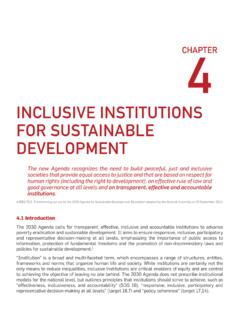Transcription of Impact of COVID-19 in Africa - United Nations
1 Policy Brief: Impact of COVID-19 in AfricaUPDATED 20 MAY 20202 Impact OF COVID-19 IN Africa | Executive SummaryEXECUTIVE SUMMARY: Impact of COVID-19 in Africa1 World Bank is too early to know the full Impact of COVID-19 on Africa . To date the experience has been varied. There are causes for concern, but also reasons for hope. Early estimates were pessimis-tic regarding the pandemic s Impact on the conti-nent. But the relatively low numbers of COVID-19 cases reported thus far have raised hopes that African countries may be spared the worst of the pandemic.
2 While the virus is present in all African countries, most countries have recorded fewer than 1,000 cases. The African Union acted swiftly, endorsing a joint continental strategy in February, and complementing efforts by Member States and Regional Economic Communities by providing a public health is warranted, however, as these are early days in the life cycle of a disease that is still not fully understood and where we have seen repeated patterns of first slow, then exponential growth in the number of cases. The low numbers recorded so far could be linked to minimal capacities for testing and reporting cases.
3 WHO has warned that the pandemic could kill between 83,000 and 190,000 people in 47 African countries in the first year, mostly depending on governments responses; and the virus could smoulder for several years. Moreover, as with other regions, there is not one homogenous narrative around the COVID-19 pandemic in Africa . The pandemic is affecting African countries differently, given varied strengths and vulnerabilities. Only one third of Africans have access to proper hand washing, for instance, and there is less than one doctor per one thousand people on the But some countries also have a wealth of relevant lessons from dealing with previous HIV/AIDS and Ebola epidemics on engaging communities, communicating risks and adapting local and innovative methods to craft African approaches to control spread of the disease.
4 The Africa CentreS for Disease Control and Prevention is boosting the region s capacities by building testing capabilities, promoting knowledge-based pandemic management, and supporting governments efforts to mobilise resources for a sustained health the immediate health Impact is still evolving, the indirect consequences beyond health already bring a heavy toll. These include food insecurity, lack of medical supplies, loss of income and livelihood, difficulties in applying sanitary and physical distancing measures, a looming debt crisis, as well as related political and security risks.
5 This policy brief takes a Executive Summary | Impact OF COVID-19 IN Africa 3 snapshot of immediate impacts of the pandemic on health, economies, peace, security, human rights and humanitarian assistance in Africa . It outlines response measures currently being taken by African and external stakeholders and provides recommendations to protect gains in the fight against the pandemic and maximise opportunities in the recovery for a more inclusive and sustainable future as countries emerge from this crisis. THE FOLLOWING KEY FINDINGS EMERGE FROM OUR ANALYSIS:H E A LT H: The global health response must emphasize solidarity towards developing countries, guided by the notion of health as a global public good.
6 African countries, with partner support, can take measures to improve testing capacities, access to medical supplies, and participation in vaccine and treatment research; enhance production and innovation through intra-African collaboration; expand deployment of community health workers, which proved effective during previous health crises; and boost medical personnel capacity, including by tapping into diaspora expertise. Once vaccines or medical treatment for COVID-19 are discovered, it is critical that Africa benefits from equal access.
7 In addition, these measures must be part of a comprehensive effort to improve the resilience and preparedness of healthcare systems that will be increasingly exposed to risks, from climate-induced natural disasters to :To help address the devastating economic and social consequences of this crisis, we need a comprehensive global response package amounting to a double-digit percentage of global Gross Domestic Product. For Africa , that means more than $200 billion. All of Africa s partners must mobilize. We also need an across-the-board debt standstill for African countries as well as comprehensive options towards debt sustainability and solutions for structural issues in the international debt architecture.
8 Increased resources from the multilateral lending agencies, including through raising IMF Special Drawing Rights, will also be critical to the region s success in dealing with the consequences of the pandemic. It is vital that measures to address the economic and social fall-out of the crisis include direct support that will keep households afloat and businesses solvent. There must be a focus on the most affected. The steps so far taken by African governments to save lives and protect livelihoods with a people first approach, and their efforts to support large, medium and small enterprises, as well as the informal sector, which is the predominant sector for women s employment, need to be scaled up substantially, supported by all partners.
9 Emergency budgetary support is also needed to procure essential lifesaving materials and effect the immediate socio-economic response. FOOD SECURITY:Many Africans risk becoming food insecure as a consequence of this crisis. It is important to prioritize agriculture by declaring it a critical sec-tor that should not be interrupted by COVID-19 related measures. Food corridors need to be secured, and farmers supported, to ensure unin-terrupted supplies and food security. Similarly, focus should be on regions and communities where risks are most acute, strengthening social protection systems and safeguarding access to food and nutrition for the most vulnerable groups, especially young children, pregnant and breastfeeding women, older people and other at-risk Impact OF COVID-19 IN Africa | Executive SummaryPEACE AND SECURITY: While dealing with the menace of the pandemic, maintaining peace and security in Africa remains paramount.
10 Priorities in this regard include silencing the guns, implementing the Secretary-General s and the African Union Commission Chairperson s appeal for a cease-fire, sustaining peace processes and critical peace operations. The response to COVID-19 needs to be conflict-sensitive and avoid generating new tensions. Decisions regarding planned national elections should be taken in an inclusive and consultative manner. An inclusive security approach would also ensure that the spike in violence in the home and harmful practices, such as child marriage, and sexual abuse as a result of the pandemic, are integrated through preventive measures into all response Policy Brief on COVID-19 and Human RIGHTS:Keeping human rights considerations to the fore of COVID-19 response results in better Citizen trust in institutions, trans-parency and social cohesion appear to enhance compliance with response measures.
